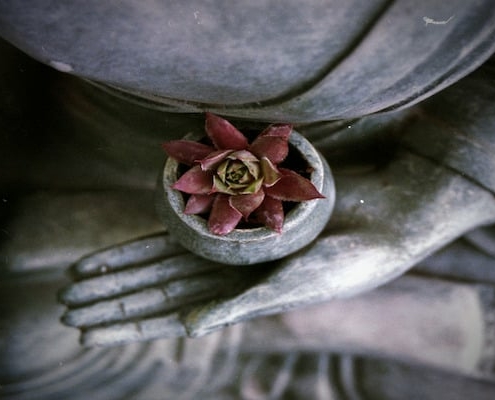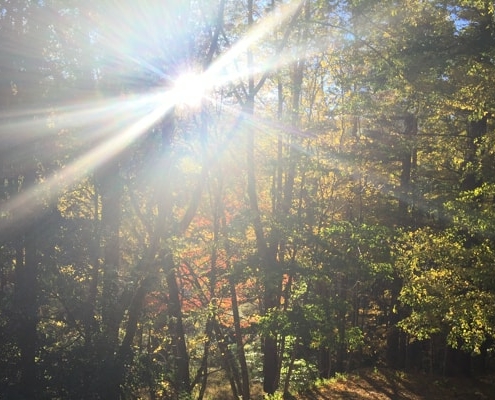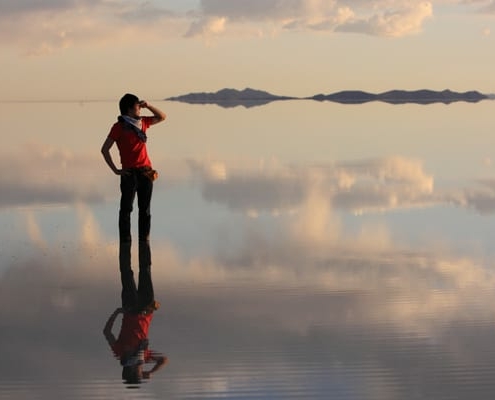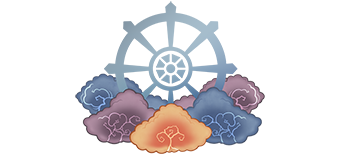
Blog: Personal Responsibility: An Interview with Isa Gucciardi, Ph.D.
Applied Buddhist Psychology, Blog, Empowered Living, Inner Wisdom, Isa Gucciardi, Personal Responsibility, RelationshipsQuestion: How would you define personal responsibility?
Isa: Personal responsibility is a process of becoming more self-aware, understanding your motivations, your intentions, and the effect your actions and thoughts have on you and those around you. It involves a willingness to contemplate the consequences of your emotional responses, and the ability to recognize when those expressions are harmful and when they are beneficial.

Buddhist Meditation in Depth Hypnosis
Applied Buddhist Psychology, Blog, Buddhism, Depth Hypnosis, Empowered Living, Inner Wisdom, Isa Gucciardi, Mind TrainingBy Isa Gucciardi, Ph.D.
Depth Hypnosis is a therapeutic process that blends elements of Shamanism, Buddhism, transpersonal psychology, hypnotherapy, and energy medicine. Buddhism is one of the main engines of Depth Hypnosis, and meditation is one of many tools we use to help clients alter their state of consciousness. Meditation enables clients to shift their focus from their "thinking minds" to their inner experience.
Blog: Weaving Worlds at Menla
Applied Buddhist Psychology, Blog, Robert ThurmanBy Isa Gucciardi, Ph.D.
The wind at Menla arises in its own particular way at any time of the year. But in the fall something very special happens when you least expect it. By October, the leaves have begun to change. The sumac is brilliant scarlet, the ash trees are a deep vermillion and the catalpa trees are inexplicably brighter green than they were all summer. In the midst of all these hues, the wind arises.
Blog: Buddhist Perspectives on Grief and Loss
Applied Buddhist Psychology, Blog, Buddhism, Death, Empowered Living, Grief and Loss, Robert ThurmanBy Isa Gucciardi, Ph.D.
In Robert Thurman’s prelude to his translation of Bardo Thodol, commonly translated as The Tibetan Book of the Dead, he takes to task scientific materialists’ perspective that death is a terminal state, a state of nothingness where life is destroyed. He points out that these materialists “have never observed even one material thing become nothing. Why should the energy reality of a state of awareness [life] ……be the exception to the law of physics that energy is conserved and only transformed?” I have always appreciated Dr. Thurman’s willingness to take on monolithic prejudices, in the name of science, in response to spiritual questions. I have always felt the wholesale rejection of notions such as the possibility of life after death and the existence of spirit was highly unscientific. In order to step into the universe of life beyond death from the Buddhist perspective, we have to allow ourselves to be disabused of the ways in which we may have unwittingly digested the viewpoints of scientific materialism on these subjects simply because they dominate in our education system.
Blog: The Two Truths: Finding Meaning in Difficult Situations
Applied Buddhist Psychology, Blog, Buddhism, Cases, Depth Hypnosis, RelationshipsBy Isa Gucciardi, Ph.D.
In a recent dinner conversation with friends, the Buddhist concept of the Two Truths came up. In Buddhist philosophy, the Two Truths offers an explanation of the nature of reality. The discussion wound around to how I introduced adapted elements of the Two Truths to students in the Depth Hypnosis Foundation Course. This adaptation is a bit like an overview, making the concept a little easier to grasp and apply in a Western context.
Blog: Ask Isa: Overcoming Guilt as a Reaction to the State of the World
Applied Buddhist Psychology, Ask Isa, Blog, Buddhism, Empowered LivingBy Isa Gucciardi, Ph.D.
Question: I feel very guilty about the state of the world and my relatively good life. I have so much and others are in such pain and have so little. My response is to over-give in an effort to help, but it never seems to be enough and I just end up feeling worse about myself and about the state of the world. How do you live with the knowledge that so much is wrong in the world and then not do something about it?
Blog: Finding Power in Powerlessness
Applied Buddhist Psychology, Blog, Depth Hypnosis, Empowered Living, Personal Responsibility, RelationshipsBy Isa Gucciardi, Ph.D.
The roots of anger, and indeed, the roots of many potentially destructive emotions, lie in powerlessness. Most people would not choose destructive emotions as a way to gain control over circumstances if they could learn to tolerate not having control over the situations around them. It is important to be gentle with yourself and have self-compassion as you learn to be present with your anger. It is easier to be compassionate with yourself if you can trust your ability to take responsibility for any way you may have harmed yourself or another with anger. In this way, you won't look for the easy "out," but instead learn everything you have to learn from the way you have related to your anger. In this way, you can understand the roots of your anger more fully, make amends where needed, and honor the information contained in your anger.
Blog: Listening to Anger
Applied Buddhist Psychology, Blog, Depth Hypnosis, Energetic Patterns, Personal Responsibility, RelationshipsBy Isa Gucciardi, Ph.D.
There is a Mahayana Buddhist idea that everything in our experience is part of the path to enlightenment. This is very important to remember when we find ourselves wanting to avoid relating to others because it seems too overwhelming. We must remember that everything that comes up in our experience is workable.
Blog: Having Compassion for Yourself and Others
Applied Buddhist Psychology, Blog, Depth Hypnosis, Energetic Patterns, Personal Responsibility, RelationshipsBy Isa Gucciardi, Ph.D.
How attentively do you listen to yourself? Are you engaging in negative self-talk? Are you seeing your own self-talk reflected in how you talk to others? Are others having a reaction? Is it hard to ignore or deny that reaction? Here’s a hint: There is probably a part of yourself that is hearing that negative self-talk and having a reaction similar to those around you who you might be treating in the same way. This is one of many benefits of being in relationship. We can learn about ourselves and see ourselves through the lens of relationship.
